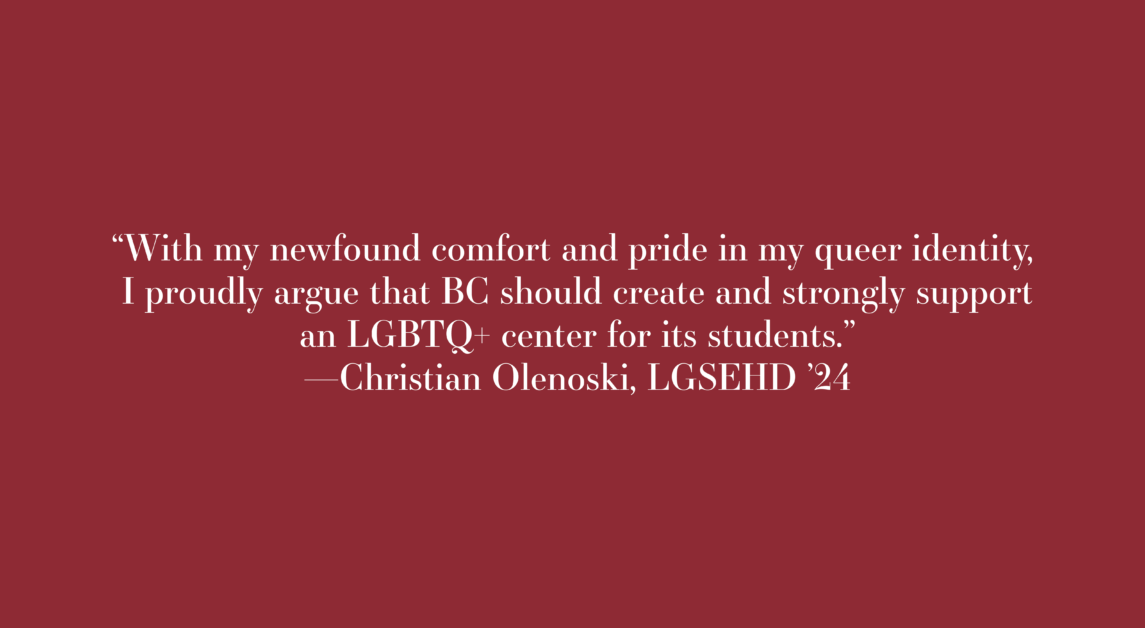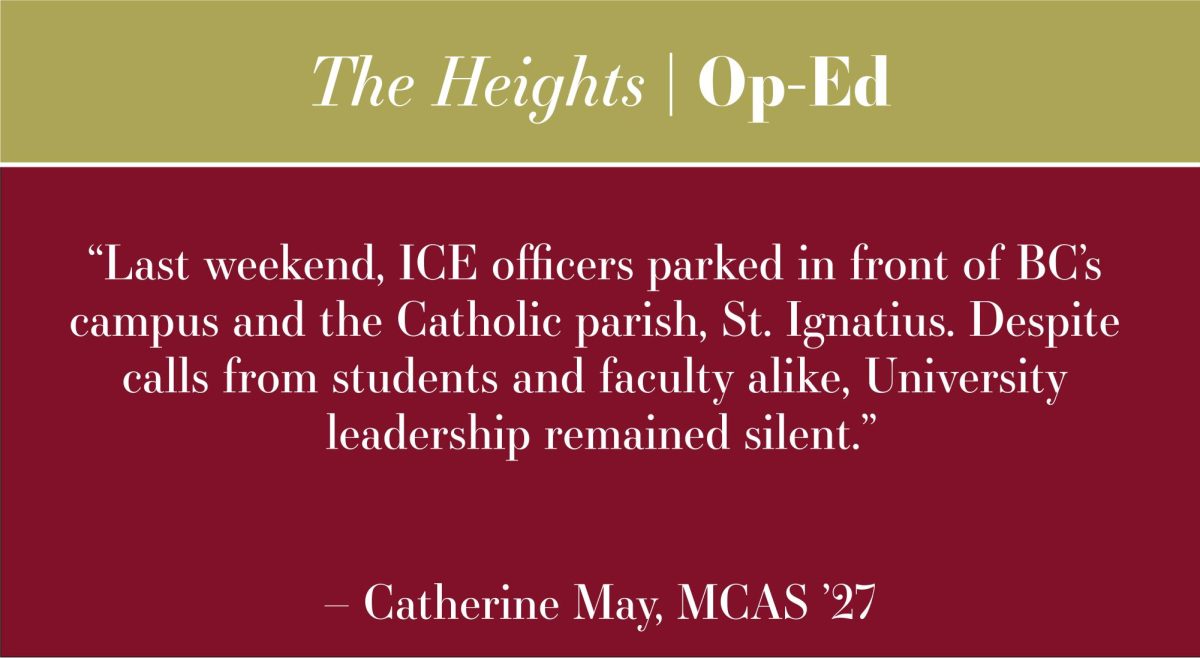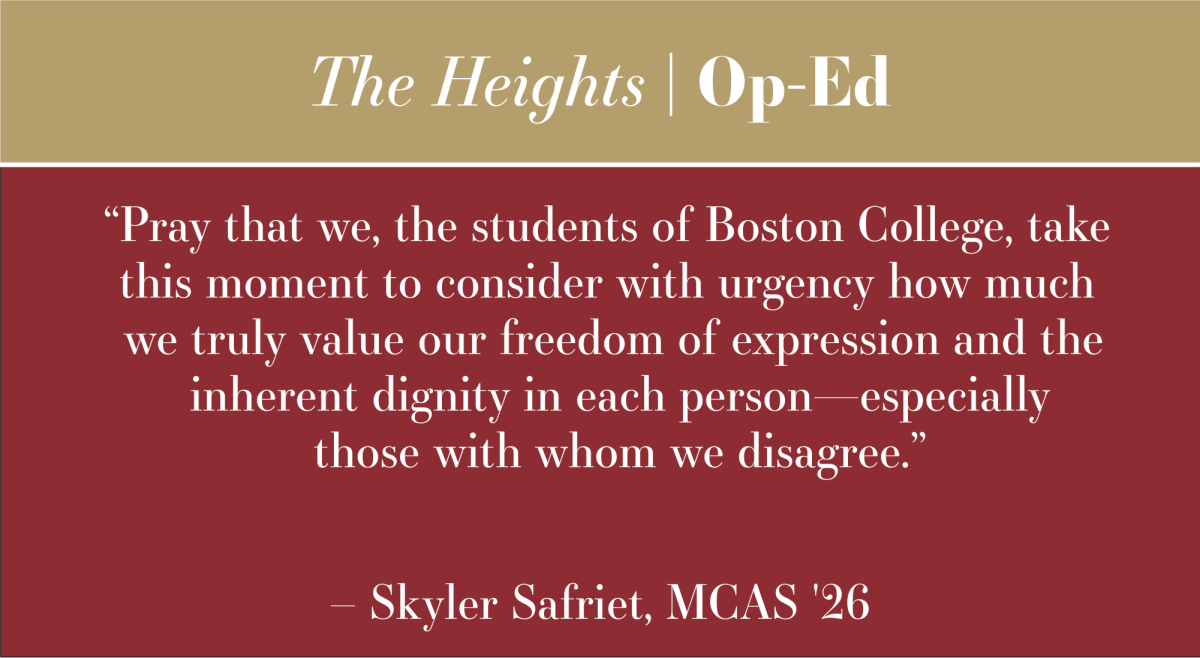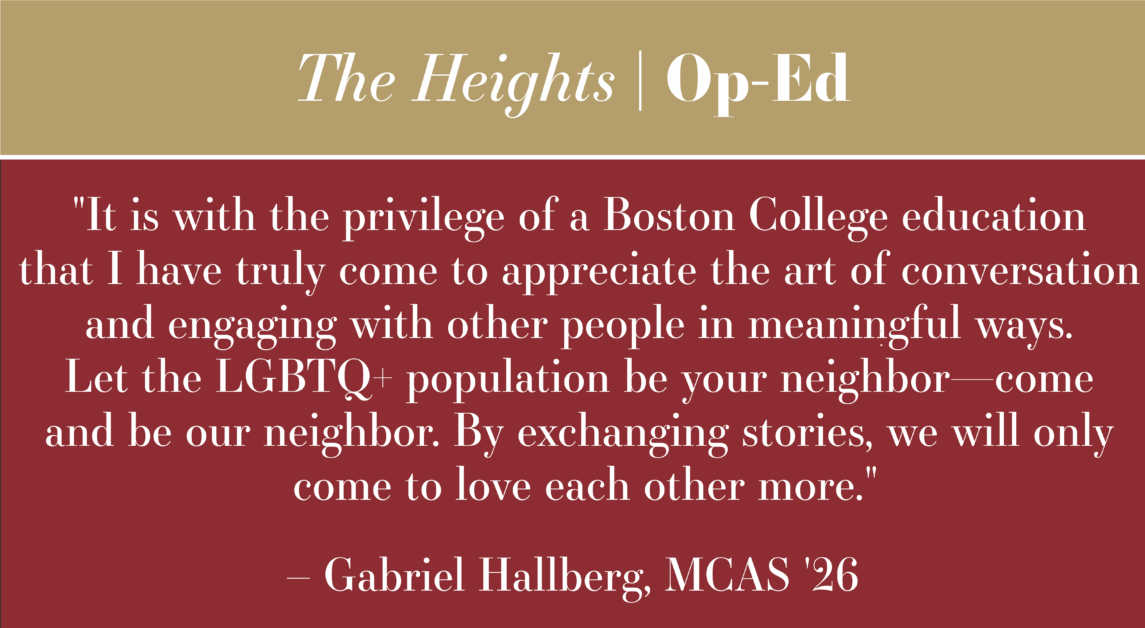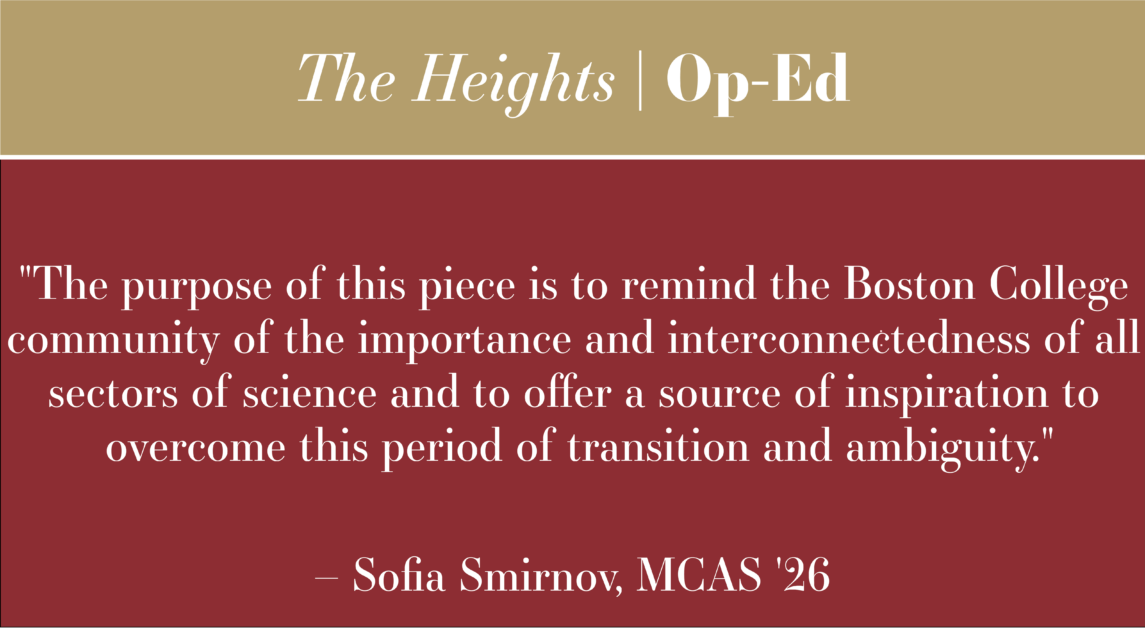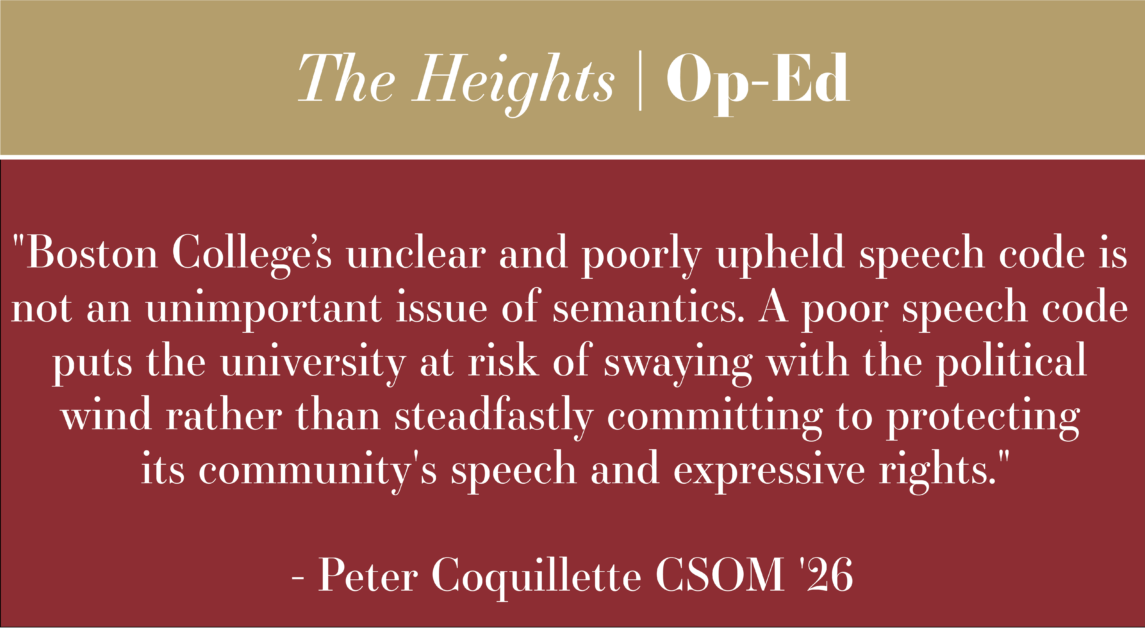When applying to graduate programs in the Boston area, I quickly learned of BC’s history of administrative homophobia and transphobia, particularly from University President Rev. William P. Leahy, S.J. Over the course of his tenure, Leahy has ignored and dismissed LGBTQ+ student advocacy and contributed to a cycle of discrimination and abuse on campus. A prominent part of Leahy’s mission has been upholding and defending Jesuit values, although these values directly contradict his actions of upholding hate and intolerance. This is especially seen through his silence on incidents of racism, decisions to not recognize LGBTQ+ student groups, and failure to protect students against predatory clergy members. BC claims to foster the Jesuit tradition of cura personalis, which means “care of the whole person.” How can an institution that preaches holistic care disregard LGBTQ+ rights—which can often be a salient part of many students’ lives?
Students and staff frequently discuss the possibility of creating an LGBTQ+ center on BC’s campus, and a recent article in The Boston Globe has shed light on the controversial fight. In April, BC officially announced it will implement LGBTQ+ resources within its Thea Bowman AHANA and Intercultural Center this summer—rather than creating a stand-alone center. This is a step in the right direction, but it is not enough.
Merging all identity-based groups into one center can have serious drawbacks. Resource centers are meant to be places for students to simply be comfortable in their own identities. This is more difficult when they do not have a distinct space for their most principal identities, separate from all others. Rather than accepting this compromise, it is worthwhile to explain how the lack of an independent resource center at BC can cause suffering in its students’ lives, and how a center-less BC actively hinders the identity development of its student body.
First, by rejecting calls for a center, BC implies that students’ LGBTQ+ identities are expendable and invalid. With few resources, queer students may be unaware of where to go to find help or connect with others in their community. I struggled to find this support when arriving at BC, although I ultimately gravitated to resources from the Office of the Dean of Students and student groups like the Graduate Pride Alliance. These organizations had limited outreach, however, so I only found their support when I actively searched for it. I solely discovered these few resources through an assistantship application to the Dean of Students Office and word of mouth about Graduate Student Association events. There was little to no overt University communication that they even existed. For students who are not out or are still questioning their identity, these resources may not be easy to find. Lack of a communal space for queer students can impact their sense of belonging and make support seem invisible.
Second, unlike other Jesuit schools, BC is robbing its students of proper access to support and care. Georgetown University and Marquette University provide valuable resources with their centers for LGBTQ+ students, including guidance on displaying pronouns, providing a map of all-gender bathrooms across campus, supplying a “Queer Closet” of gender-affirming clothing, and hosting a multitude of events for LGBTQ+ student connection. BC lacks many of these resources that could help queer students wholeheartedly embrace who they are.
Lastly, by denying a resource center, BC inhibits the growth and exploration of its queer students’ identities. College is meant to be an experimental period for its students, regardless of students’ sexuality or gender. LGBTQ+ students are stripped of these opportunities at BC due to constant administrative pushback coupled with the hypocrisy of Jesuit values. Students should be able to learn about their community, build relationships freely, and live authentically. If an institution is unable to foster an environment that allows them to do so, students will falter in their identity development and be left questioning themselves.
With these issues in mind, I am loudly and proudly calling upon the University to take action and support its LGBTQ+ students. A resource center is an essential requirement for providing LGBTQ+ students a sense of belonging on campus in the face of administrative opposition.
BC must truthfully commit to live by its Jesuit values and “care for the whole person” by supporting its entire student body. Otherwise, LGBTQ+ students will continue to be silenced and outcast by their institution.

